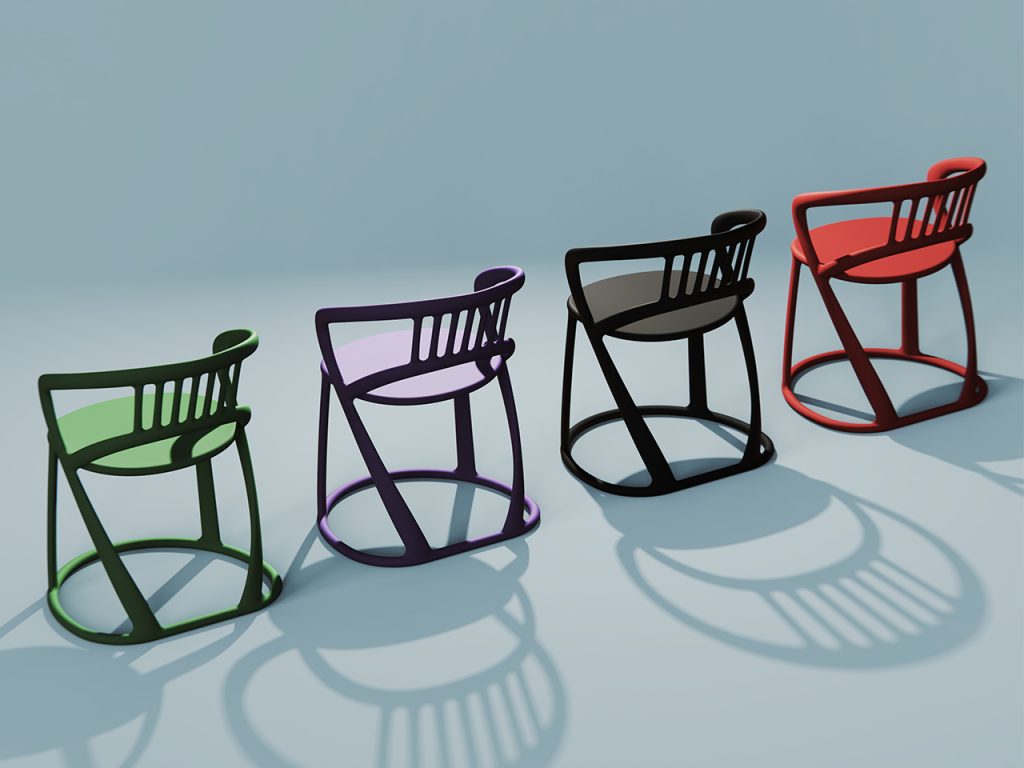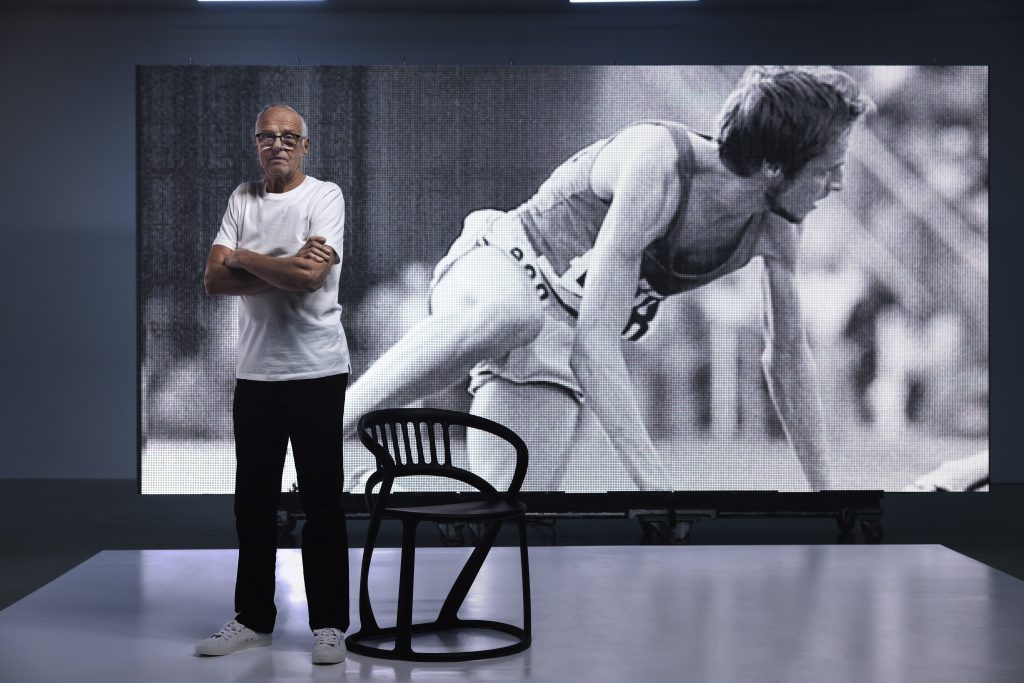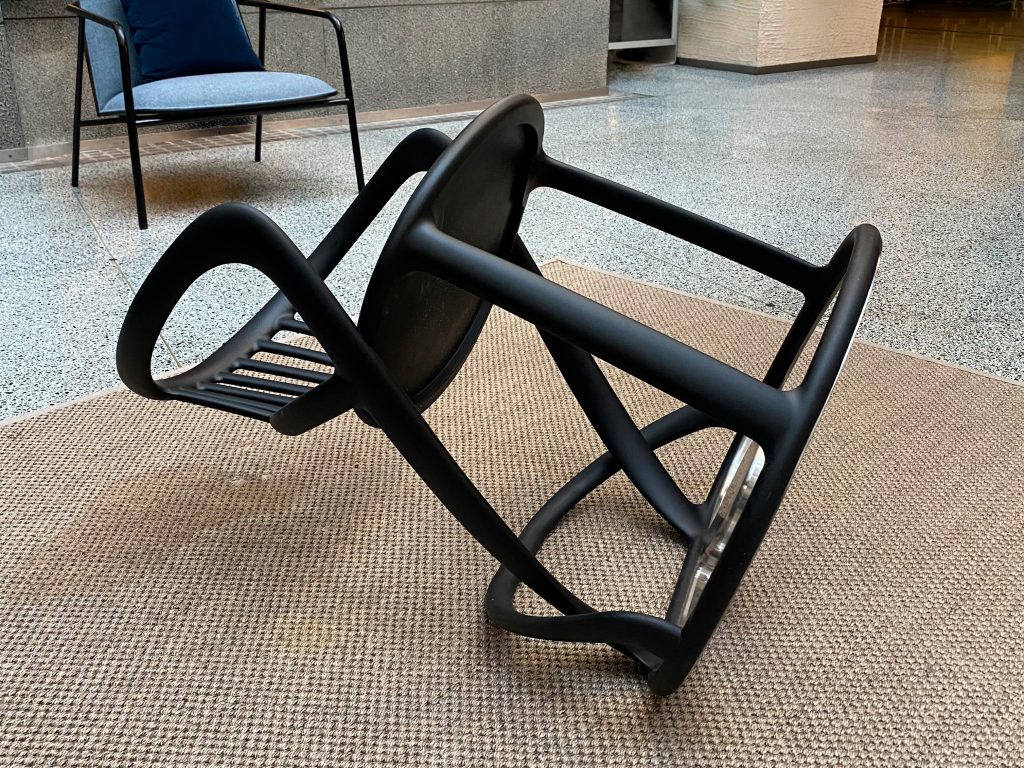Ever since the 1950’s plastic has been a key material in design. However, for the past decade the industry has been misdirected to discuss reducing the use of plastic – when focus should in fact go to increasing its recycling rate. Therefore Fortum, a forerunner in recycled plastic compounds, has developed a self-rising chair made of recycled plastic. By picking itself up without robotics, the chair represents plastic’s comeback as a sustainable material.
To demonstrate what recycled plastics can do, Fortum has developed a chair made from Fortum Circo® recycled plastic produced from post-consumer plastic waste. The self-rising Virén Chair is inspired by Lasse Virén, a Finnish long-distance runner who fell in the middle of the 10,000-metre final in the Munich Olympics. The odds were not in his favour, but he got up, won gold, and set a new world record.
“The story of Lasse Virén – and especially his legendary win in the Munich Olympics – is still inspiring for many of us. Our ambition was to honour comebacks, progression and resilience through the Virén Chair and to show what can be achieved with recycled plastics today. Furthermore, the Virén Chair pays respect to Finnish design with characteristics of plastic furniture developed in the 1960s by Finnish designers,” says Jussi Mälkiä, Brand Manager at Fortum.
The chair has been developed together with a variety of professionals from engineers to physicists and researchers. Fortum’s creative partner behind the idea is TBWA\Helsinki and the prototype has been 3D printed together with Maker3D.
“Honoring the running legend Lasse Virén was very present at all stages of our design process. We wanted the chair to reflect his legacy with a design that is both aerodynamic and organic and takes its inspiration from running motion. When taking a closer look at the chair and more specifically the legs, one can distinguish a form of a runner preparing to take off from the starting line”, explains Umberto Onza, Lead Designer of the chair from TBWA\Helsinki.
Fortum as a forerunner in creating recycled plastic compounds
By 2019 only 9% of the plastic waste ever generated had been recycled, and in 2019 only 14% was collected for recycling (source: UNEP). The real problem lies in the deficient waste management systems, not the plastic material itself.
“Plastic is in many ways a superior material that is hard to substitute. The consumption of plastic is growing globally all the time; the discussion around plastics should instead focus on how to increase recycling. We should make sure that the value of the material is preserved by recycling the plastic and converting the waste into reusable material whenever possible,” says Anniina Rasmus, Brand Sales Manager at Fortum Recycling and Waste.
Fortum wants to expand the use of recycled plastics by developing recycled plastic compounds. In this process the qualities of the recycled plastic are enhanced so that the compounds can be used for products that are more technical and challenging in terms of production, of which the Virén Chair is a good example.
“The Virén Chair is made from Fortum Circo® recycled plastic compound reinforced with cellulose fibre to strengthen the material and reduce its carbon footprint. The carbon footprint of Fortum Circo® recycled plastic is about half that of virgin plastics. The added cellulose fibre, originating from renewable sources, also absorbs carbon, further reducing the carbon footprint of the material,” Rasmus points out.

Source: TBWA\Helsinki.




You must be logged in to post a comment Login